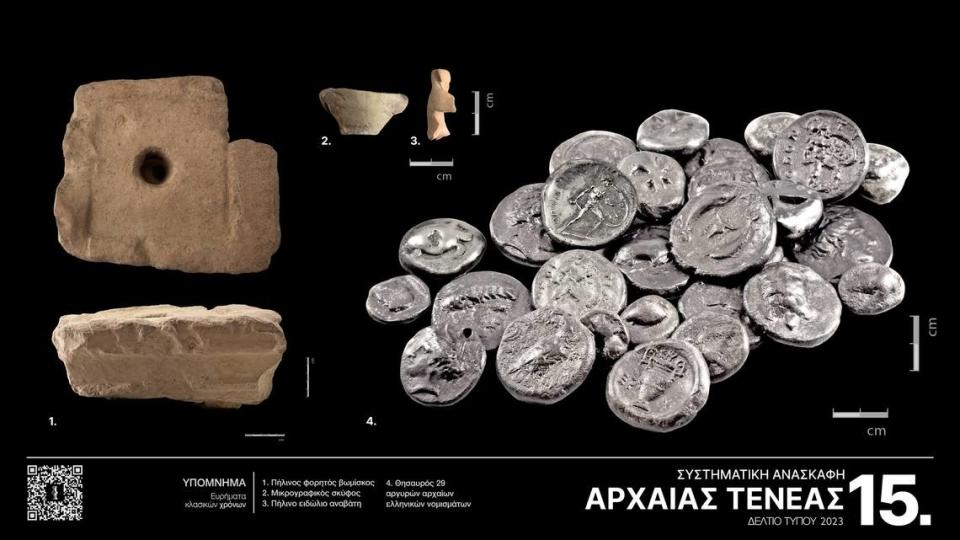Rare coins minted during ancient Olympic Games unearthed in Greece, photos show
A trove of 29 rare coins was recently unearthed in Greece, some of which were minted during the ancient Olympic Games, officials said.
The pieces were discovered during an archaeological excavation in Chiliomodi, a small village about 60 miles southwest of Athens, according to a statement from the Greek Ministry of Culture.
Made from silver and measuring only a few centimeters in diameter, the coins were found alongside a clay altar, vase and horse figurine, officials said. They date to between the sixth and fourth centuries B.C., making them over 2,000 years old.
Photos show many of them bear unique engravings, including human faces, animals and mythological figures. Together, they compose some of the rarest and most noteworthy coins from Greek antiquity, officials said.

Three of them were pieces known as staters, which were minted in Olympia during various Olympic Games, officials said.
Silver staters were just one of various types of coins used by the ancient Greeks, according to the Ashmolean Museum of Art and Archaeology in the U.K.
Their value was determined by their weight and type of material. A small silver coin would have been equivalent to the average daily wage for a man.
“Coins were not just money, but propaganda or a means of communicating civic pride,” according to the museum. “Without newspapers or other mass media, they were an ideal way of spreading a political message.”
Others coins found at the site were minted in a variety of ancient Greek city-states, including Argos and Thebes.
At least one coin depicts Hercules, a revered demigod, strangling snakes with his hands, officials said.
In Greek mythology, the goddess Hera sends two snakes to kill an infant Hercules, who, in a display of extraordinary strength, kills them, according to research from the University of North Carolina Wilmington.
In addition to the cache of coins, archaeologists also discovered remnants of an ancient settlement and Roman building and tomb complexes, officials said.
Google Translate was used to translate a news release from the Greek Ministry of Culture.
Letter from Roman emperor leads to discovery of cult temple hidden beneath parking lot
15th century shipwreck reveals ‘surprising’ cargo and weapons for fending off pirates
‘Highly rare’ and ‘charismatic’ sea creatures spotted off Cayman Islands, video shows

